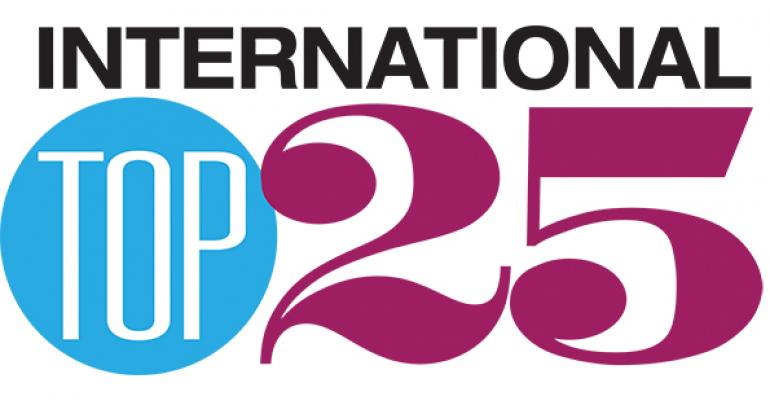Data
• Chains by sales, growth
• Chains by worldwide units, growth
• Companies by sales, growth
• Chains by estimated sales per unit
Home to some of the world’s greatest culinary traditions and most enthusiastic eating-out cultures, Western Europe has not historically produced a large number of home-grown chain concepts, with independents still dominant in markets like Spain and Italy. Even in markets like the UK, where local chain players are highly relevant, they are often found in very specific categories, many of them not easily exportable. The classic example of this can be found in the UK pub category, with “pubcos” such as Enterprise Inns or Punch Taverns leasing out thousands of pubs to local operators under a franchise or license model. Two of the largest Western Europe-based companies are pub operators, with J.D. Wetherspoon plc and Mitchells and Butlers plc collectively accounting for nearly $4.5 billion (U.S.) in sales in 2013, virtually all of it confined to the UK market.
Exceptions do exist, most notably Whitbread plc’s Costa Coffee, the UK-based coffee shop concept which can now be found in more than 25 global markets, competing head-to-head with Starbucks in almost all of them. Similarly, Italy’s Autogrill S.p.A. is a dominant force in the world of travel foodservice, operating a large of stable of in-house brands across the globe in airports, railway stations, and along highways. The company is also one of the largest franchisees globally, operating travel locations for global brands such as McDonald’s and Burger King. These types of non-traditional locations have long been a stronghold for chains in Western Europe, as they have elsewhere, with another European brand, Germany’s Tank & Rast, now a billion-dollar brand with a business focused solely on concessions along the German autobahn.

While home-grown chains have for the most part remained regional or local in nature, the continent has proven quite hospitable to global chains like McDonald’s, which has long counted France as one of its highest-grossing, most-profitable overseas markets. Likewise, brands such as KFC, Pizza Hut and Domino’s Pizza have all enjoyed resurgences in recent years, profiting from strong demand for affordable fare in a compelling outlet environment. While local chains have generally chosen to focus on segments which do not compete directly with the leading global fast food players, an important exception to this has been the France and Benelux-based Quick, a hamburger chain which has competed quite effectively it is home market with the likes of McDonald’s and Burger King, surpassing $1.3 billion in 2013 sales.

While the economic outlook for Western Europe remains uncertain, several markets continue to hold real potential for chain operators. In the United Kingdom, a bona fide coffee boom has been underway for years, with Starbucks and fellow local operator Caffe Nero joining Costa Coffee in a three-way race for coffee shop supremacy, while in France consumers continue to respond to new and innovative concepts. Despite that market’s strong culinary tradition, there are still unmet needs to be served, and any number of foreign and domestic chains can be expected to do just that going forward. All across Western Europe, in fact, the ongoing struggles of independents continue to create openings for chains, particularly as per capita spending on eating out among consumers remains high by global standards. For the occasions once served by traditional formats such as cafes, bars, and pubs, the potential opportunity for chains is tremendous, as permanently value-minded Western European consumers become more discerning than ever.





